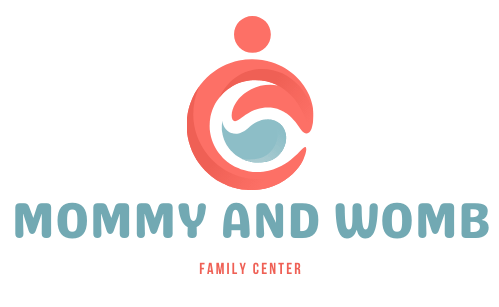7 Weeks Pregnant: Your Baby’s Early Development

At 7 weeks pregnant, your baby is changing fast. The embryo is now about 0.37 inches (9.5-10 mm) long, growing a lot since conception. The heart beats quickly, between 120 and 160 times per minute1. The umbilical cord has also formed, linking the baby to the placenta.
This is a time of fast growth and brain development. Brain cells are being made at a rate of 100 per minute.
As the embryo grows, you might see arm and leg buds starting to form. The baby’s mouth, tongue, and kidneys are also developing. The mucus plug is forming to keep the womb safe from bacteria1.
The eyes are covered with eyelid beginnings, and the ears are forming. This shows your baby is growing well1.
Table of Contents
7 Weeks Pregnant: Your Baby’s Early Development
Understanding Early Pregnancy at Week 7
As you reach the 7th week of pregnancy, you’re filled with excitement and curiosity. Your baby is growing fast, making big changes that are crucial for a healthy pregnancy and a happy child.
Size and Development Milestones
The embryo has grown a lot by the 7th week. It’s now about a quarter of an inch long and weighs 0.04 ounces. This shows how quickly your baby is growing, being 10,000 times bigger than at conception just a month ago4.
Brain Cell Formation
One amazing thing about early pregnancy is the creation of brain cells in your baby. New brain cells are made at an incredible 100 per minute. This early brain development is key for your child’s thinking and feelings, preparing them for a lifetime of learning.
Organ Development Progress
Your baby’s growth keeps going, with arm and leg buds getting longer and stronger4. The kidneys are also ready to start making urine, which is essential for your baby’s health4. The umbilical cord, your baby’s lifeline, has formed and connects to the placenta, providing vital nutrients and oxygen.
“At 7 weeks pregnant, your baby is truly a marvel of nature, with incredible growth and development happening at a rapid pace. It’s a truly awe-inspiring time in your pregnancy journey.”
Common Physical Changes and Symptoms
Pregnancy brings many physical changes and symptoms. At 7 weeks pregnant, you might feel frequent urination and food cravings. Breast tenderness and fatigue are also common, as your body prepares for your baby.
Morning sickness is a well-known symptom, affecting up to 90% of women by 8 weeks. It’s not just in the morning. Mood swings are also common, due to hormonal changes.
Other changes include:
- Breast growth and darkening of the areola
- Increased saliva production
- Constipation due to slowed digestion
- Heartburn and belching
Every pregnancy is different. The intensity and duration of symptoms vary. Staying hydrated, resting, and talking to your healthcare provider can help manage these symptoms as you start your motherhood journey.
“The first trimester of pregnancy can be a rollercoaster of physical and emotional changes, but with the right support and self-care, you can navigate these transformations with grace.”
Coping with Pregnancy Cravings
Pregnancy cravings can be fun, but it’s key to eat balanced. If you crave non-food items, talk to your healthcare provider. It could mean you’re missing something important.
Your Baby’s Growth at 7 Weeks Pregnant
Your baby is growing fast at 7 weeks. They are forming limb buds and growing internal organs quickly. Their brain and nervous system are also starting to develop.
Formation of Limb Buds
The baby’s limb buds are starting to look like paddles. These will grow into arms, legs, hands, and feet8.
Development of Internal Organs
The baby’s organs are growing fast. The heart is pumping blood, and the liver is making red blood cells. The appendix and pancreas are also beginning to form8.
Neural Development
The neural tube is closing, which is key for the baby’s brain and spinal cord. This is crucial for their nervous system8.
The baby’s face is also coming together. Nostrils, eye lenses, and ear indentations are forming. This growth is important for their future development8.
Essential Nutrients and Dietary Guidelines
Keeping a balanced diet is key for your baby’s growth and your health. At the 7th week of pregnancy, make sure to add folic acid and vitamin D to your meals.
Folic acid, or vitamin B9, is vital. It helps avoid birth defects and supports your baby’s brain and spine9. Take a prenatal vitamin and eat fortified foods like enriched breads and cereals to meet the 400 micrograms daily goal9.
Vitamin D is also important for bone health and may lower diabetes risk during pregnancy10. You need 600 IU of vitamin D daily. Get it from sunlight, fatty fish, and fortified dairy10.
Also, eat a variety of fruits, veggies, whole grains, and lean proteins9. Drink plenty of water and eat small meals to fight nausea10. Avoid raw meats, unpasteurized dairy, and high-mercury fish to avoid foodborne illnesses10.
Eating well supports your baby’s growth and your health. Every meal you eat helps your baby thrive.
Managing Early Pregnancy Discomforts
Early pregnancy brings many physical and emotional challenges. You might face morning sickness, fatigue, and food aversions. Understanding and tackling these symptoms is key to supporting your nurturing journey.
Morning Sickness Solutions
Morning sickness, or nausea and vomiting, is common. To ease it, eat small meals often and try ginger-based foods. Drinking plenty of water and avoiding strong smells can also help.
Fatigue Management
High progesterone levels can make you feel very tired12. Resting and taking short naps can help. Light exercise, like walking, can also increase your energy.
Dealing with Food Aversions
Food aversions are common, making you avoid certain foods. Stick to foods you can eat and find other ways to get the nutrients you need.
“The physical toll of pregnancy, including weight gain, mobility limitations, and constant nausea, impacted the overall well-being of some moms.”
Every pregnancy is different, and it’s crucial to listen to your body. By tackling these discomforts, you can focus on your maternal instincts and nurturing during this special time.
Hormonal Changes and Their Effects
In your 7th week of pregnancy, your body is changing a lot. Hormones like estrogen can make you feel sick, smell things more, and be tender in your breasts13. Progesterone, on the other hand, can make you tired, constipated, and moody13.
Human Chorionic Gonadotropin (hCG) is also important. It helps keep your pregnancy going and can cause morning sickness and needing to pee a lot14. These changes are getting your body ready for motherhood and your baby’s arrival1314.
Remember, these changes are a normal part of pregnancy. Knowing how they affect you can help you deal with the tough parts. This way, you can focus on taking care of your growing baby1314.

As you start your pregnancy journey, be kind to yourself. Ask for help from your doctor or loved ones. With the right support, you can enjoy the amazing changes happening in your body. You’re on your way to experiencing the wonders of pregnancy and motherhood.
Important Prenatal Care Steps
Keeping up with prenatal care is key during pregnancy. It includes taking prenatal vitamins and supplements, going to medical appointments, and getting screening tests. These steps are vital for your health and your baby’s.
Prenatal Vitamins and Supplements
Make sure to keep taking your prenatal vitamins. They should have lots of folic acid. These vitamins are crucial for your baby’s growth, especially in the first few months.
Medical Appointments
Book your first prenatal appointment if you haven’t done so. Going to regular prenatal visits is important. They help track your health and your baby’s growth.
At these visits, your doctor will do tests like blood and urine analyses. They’ll also talk about any medicines you’re taking and any worries you have.
Screening Tests
Get ready for screening tests like blood tests, urine tests, and ultrasounds15. These tests can spot genetic or developmental problems early. This way, your doctor can give you the best care.
Talk to your doctor about genetic screening15. It can give you important info about your baby’s health. Also, learn about pregnancy dos and don’ts. If you have any questions, ask your doctor16.
By being active in your prenatal care, you’re doing a lot to help have a healthy pregnancy and childbirth experience. Remember, your healthcare provider is there to help you through this amazing time.
Physical Activity and Rest Guidelines
Regular, moderate physical activity during pregnancy is key. It offers many benefits for you and your baby. Health experts suggest at least 2½ hours of moderate-intensity aerobic activity weekly17. Safe options include walking, swimming, and prenatal yoga.
These activities help reduce pregnancy risks, ease discomforts, and prepare your body for labor17.
It’s crucial to listen to your body and avoid overdoing it. Aim for 7-9 hours of quality sleep each night. Short daytime naps can also be helpful. Keep your sleep schedule consistent and create a cozy sleep space.
Stay hydrated and wear comfortable, supportive clothing during workouts. This helps your body adapt to changes.
Talking to your healthcare provider about your exercise plans is important. They can ensure it’s safe for your pregnancy. Some conditions may make exercise risky, so discuss any concerns or limitations.
By finding the right balance between exercise and rest, you support a healthy pregnancy. This also helps prepare you for a positive postpartum recovery.
If you want to read more about the weeks of pregnancy, please click on the link below
https://www.mommyandwomb.com/pregnancy






